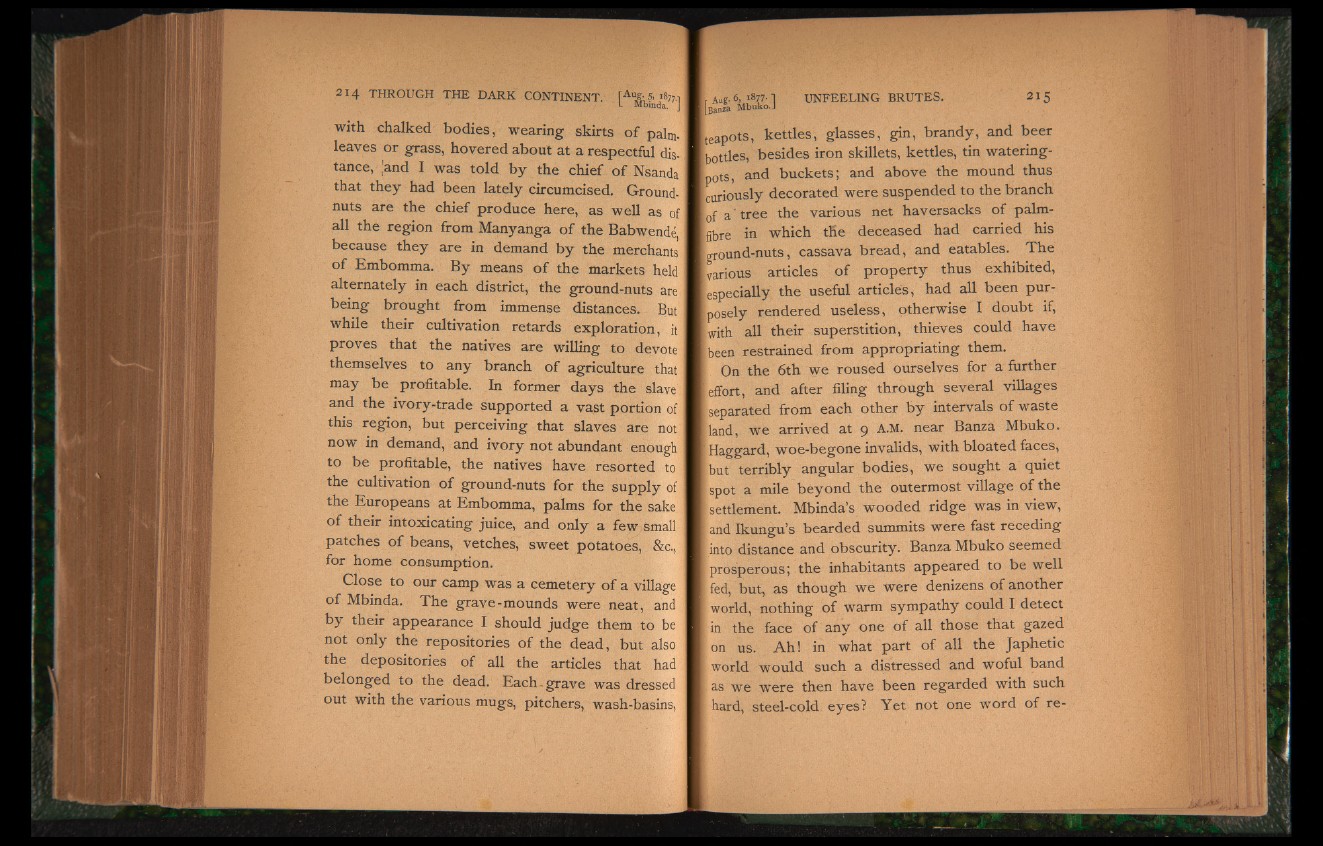
with chalked bodies, wearing skirts of palm,
leaves or grass, hovered about at a respectful dis-
tance, ¡and I was told by the chief of Nsanda
that they had been lately circumcised. Groundnuts
are the chief produce here, as well as of
all the region from Manyanga of the Babwende,
because they are in demand by the merchants
of Embomma. By means of the markets held
alternately in each district, the ground-nuts are
being brought from immense distances. But
while their cultivation retards exploration, it
proves that the natives are willing to devote
themselves to any branch of agriculture that
may be profitable. In former days the slave
and the ivory-trade supported a vast portion of
this region, but perceiving that slaves are not
now in demand, and ivory not abundant enough
to be profitable, the natives have resorted to
the cultivation of ground-nuts for the supply of
the Europeans at Embomma, palms for the sake
of their intoxicating juice, and only a few small
patches of beans, vetches, sweet potatoes, &c.,
for home consumption.
Close to our camp was a cemetery of a village
of Mbinda. The grave-mounds were neat, and
by their appearance I should judge them to be
not only the repositories of the dead, but also
the depositories of all the articles that had
belonged to the dead. Each-grave was dressed
out with the various mugs, pitchers, wash-basins,
teapots, kettles, glasses, gin, brandy, and beer
bottles, besides iron skillets, kettles, tin watering-
pots, and buckets; and above the mound thus
curiously decorated were suspended to the branch
!0f a tree the various net haversacks of palm-
fibre in which tRe deceased had carried his
ground-nuts, cassava bread, and eatables. The
various articles of property thus exhibited,
especially the useful articled, had all been purposely
rendered useless, otherwise I doubt if,
[with all their superstition, thieves could have
been restrained from appropriating them.
On the 6th we roused ourselves for a further
(effort, and after filing through several villages
separated from each other by intervals of waste
land, we arrived at 9 A.M. near Banza Mbuko.
i Haggard, woe-begone invalids, with bloated faces,
but terribly angular bodies, we sought a quiet
spot a mile beyond the outermost village of the
settlement. Mbinda’s wooded ridge was in view,
and Ikungu’s bearded summits were fast receding
into distance and obscurity. Banza Mbuko seemed
prosperous; the inhabitants appeared to be well
fed, but, as though we were denizens of another
world, nothing of warm sympathy could I detect
in the face of any one of all those that gazed
on us. Ah! in what part of all the Japhetic
world would such a distressed and woful band
as we were then have been regarded with such
hard, steel-cold eyes? Yet not one word of re